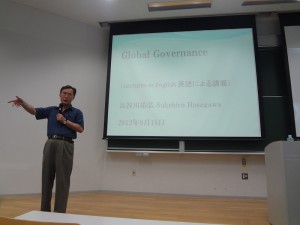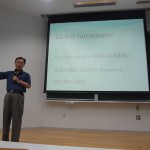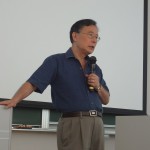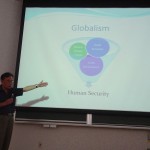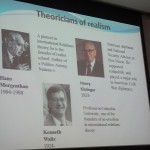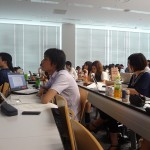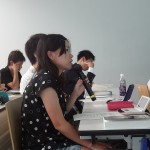On 18th September, 2012, Professor Hasegawa started his course on global governance with an explanation of its objective, schedule, grading method and reference books. He expected the students to be able to explain and discuss in English various theories and concepts of global governance by the end of the course in January 2013. Professor Hasegawa then identified four types of the globalization taking place in security, economic, environmental, and social/cultural spheres. Moreover, he explained the significance of global governance in the worlds of both Westphalia and post-Westphalia order. He referred to a definition given by the Commission on Global Governance and nine new global threats identified by the Secretary-General’s High-level Panel on Threats, Challenges and Change in its report A more secure world: Our shared responsibility published in December 2004. Finally, he introduced realism and discussed its relevance to global governance. He said he would introduce and examine later the relevance of other theories of international relations and global governance such neo-realism, liberalism, neo-liberalism, functionalism, social-constructivism, and critical theories. (Yasuki Uchiyama)
